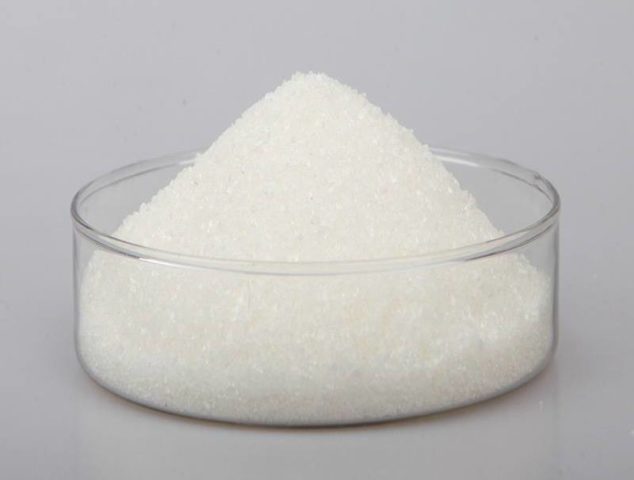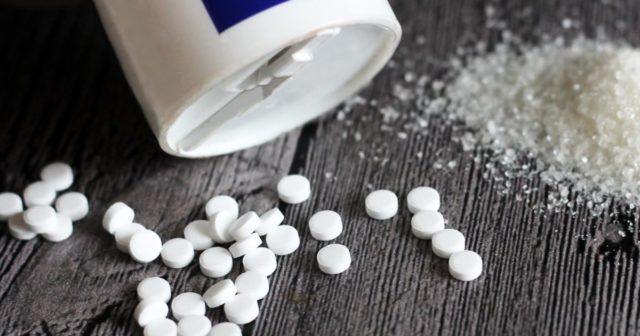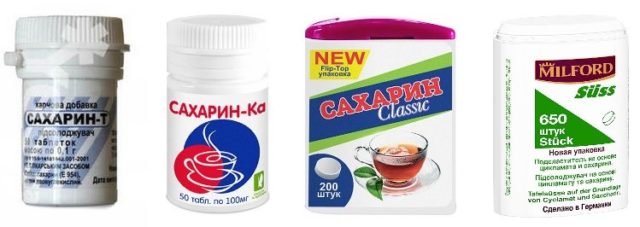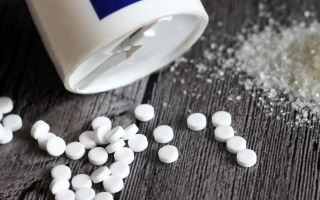Content
Food additives began to be actively used at the end of the 20th and beginning of the 21st century. Then people did not think so much about what they eat. But some were surprised why the product began to be stored longer, while having a more pleasant taste and color. Food supplement E954 refers to artificially synthesized sweeteners. Despite the similarity in name to sugar, they have nothing in common.
What is the additive E954
Food additive E954 is called saccharin or sodium saccharinate. This type of sweetener is considered zero-calorie and is often used in various foods.
The preservative began to be actively used during the war, when there was a strong shortage of sugar. Not everyone knew about the properties of the sweetener, but it was discovered by German chemists at the end of the 19th century.
The component is not classified as natural. It is synthesized in the laboratory.
Saccharin has a number of other names in the form:
- orthosulfobenzoic acid;
- benzoic acid sulfimide;
- glucide;
- sodium saccharinate;
- benzosulfimide sodium salt;
- crystallosis;
- calcium saccharinate;
- potassium saccharinate.
The sweetener is colorless. Externally presented in the form of a crystalline powder. It does not have a pronounced smell, but is characterized by an intense sweetish aftertaste. It dissolves well in hot water, alkalis and glycerin. It interacts worse with cold water, alcohol and ethers.

Sodium saccharinate composition
Recently, artificial sweeteners have gained increasing popularity. They have a low calorie content, so they are often prescribed to people with signs of obesity and diabetes.
Synthetic additives are not produced in the human body. The sweetener is not absorbed by the intestinal walls and is excreted unchanged from the body.
E954 food supplement is produced in the form of tablets. The sweetener is added to various dishes.
Sodium saccharinate consists of the sodium salt of saccharin. The compound, sweetish in taste, is obtained as a result of the reaction of potassium permanganate with orthotoluenesulfamide. In some cases, salts are prepared from benzosulfimide and potassium or magnesium hydroxide.
The benefits and harms of sodium saccharinate
A food supplement is not considered a vital ingredient. It has no nutritional and energy value. The body will define such a substance as foreign, not taking part in metabolic processes.
At the end of the twentieth century, it was banned. The thing is that scientists have carried out experiments on rodents. It turned out that the component has carcinogenic properties. This means that when consumed in large quantities it contributes to the development of malignant tumors.
But if you follow the dosage, then sodium saccharinate will be safe for the body. The normal value per day is 5 mg per 1 kg of body weight.

Dangerous or not food additive E954
How dangerous the E954 food additive is, one can only guess. But sugar substitute is not a banned product in many countries. Canada is considered the only country that has excluded the import of sweetener.
It is believed that sodium saccharinate interferes with the normal absorption of B vitamins. It can disrupt the intestinal microflora, thereby leading to the appearance of unpleasant symptoms such as nausea, diarrhea or constipation, abdominal pain, bloating and increased gas production.
It is forbidden to give food additive E954 to children under 6 years old. It is not recommended for those people who suffer from diseases of the kidneys, liver, pancreas and thyroid gland.
Can diabetics use sodium saccharinate
The food supplement is an excellent substitute for natural sugar. It has no calories, while it tastes good. Sodium saccharinate is advised to be taken for type 2 diabetes and people who are losing weight. The substance fits perfectly into the dietary menu.
But do not abuse the supplement, because excessive use threatens the development of serious complications. It must be remembered that the sweetener is recognized as a foreign substance for the body. But manufacturers claim that saccharin is completely safe. No change in blood glucose or insulin levels is observed with the dietary supplement.
If patients doubt the benefits of saccharinate, then it is better to include stevia, sweetened berries and fruits in the diet.
Where and why add saccharin E954
Food additive E954 after consumption contributes to the appearance of a specific metallic taste in the mouth. Therefore, it is often combined with soda or gelatin. Sodium saccharinate will be more pleasant for the body, since it has a smoother taste and dissolves perfectly in liquid.
Food additive E954 is added to the following products:
- diet desserts;
- instant soups;
- confectionery;
- ice cream;
- jams;
- canned food;
- flour products;
- sauces.
Sodium saccharinate can be found in chewing gum, soda, and foods for diabetics. Often a food additive is used in the pharmaceutical field. It is added to preparations with anti-inflammatory and antibacterial action.

Sodium saccharinate has found use in the manufacture of laser printers, toners, and machine glue for rubber.
Conclusion
Food supplement E954, like other sugar substitutes, has a pronounced choleretic effect. Therefore, its use should be abandoned by those people who suffer from diseases of the digestive system. In general, sodium saccharinate is recognized as a safe substance. It is prescribed for patients with diabetes mellitus and overweight, since the component has no calories.

